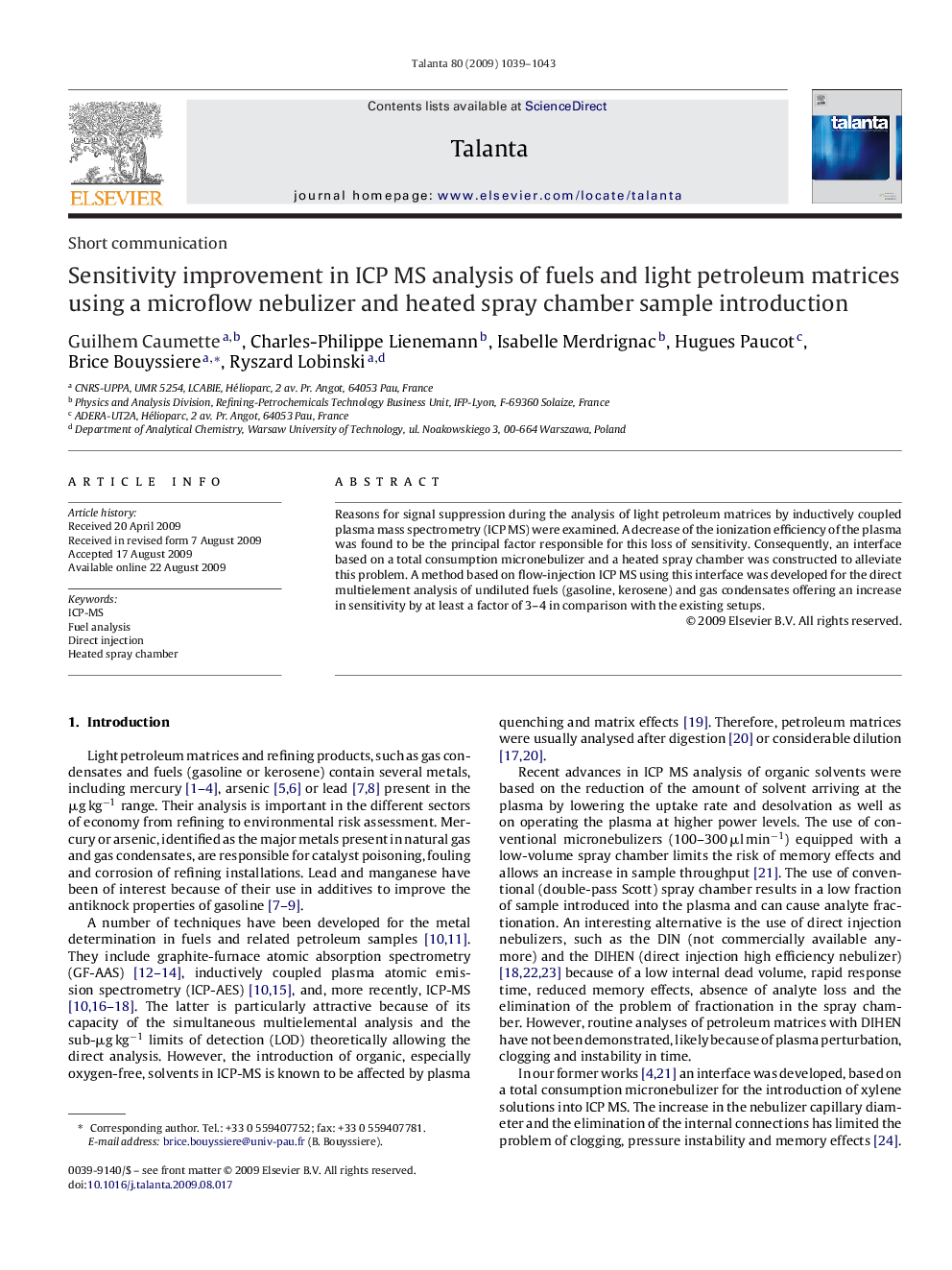| Article ID | Journal | Published Year | Pages | File Type |
|---|---|---|---|---|
| 1246803 | Talanta | 2009 | 5 Pages |
Abstract
Reasons for signal suppression during the analysis of light petroleum matrices by inductively coupled plasma mass spectrometry (ICP MS) were examined. A decrease of the ionization efficiency of the plasma was found to be the principal factor responsible for this loss of sensitivity. Consequently, an interface based on a total consumption micronebulizer and a heated spray chamber was constructed to alleviate this problem. A method based on flow-injection ICP MS using this interface was developed for the direct multielement analysis of undiluted fuels (gasoline, kerosene) and gas condensates offering an increase in sensitivity by at least a factor of 3–4 in comparison with the existing setups.
Keywords
Related Topics
Physical Sciences and Engineering
Chemistry
Analytical Chemistry
Authors
Guilhem Caumette, Charles-Philippe Lienemann, Isabelle Merdrignac, Hugues Paucot, Brice Bouyssiere, Ryszard Lobinski,
